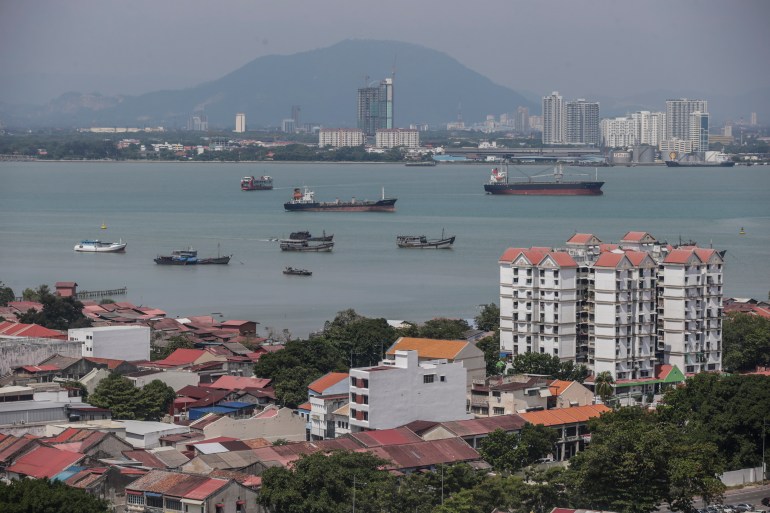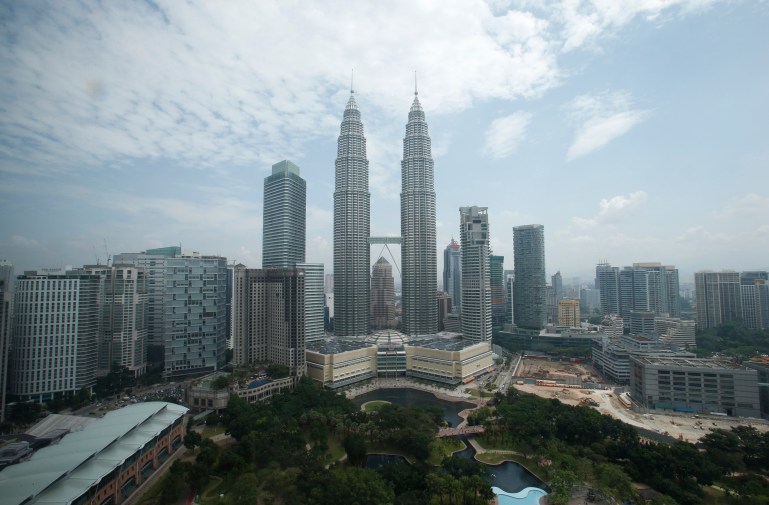Malaysia’s MM2H visa shake-up prompts cautious welcome – and questions
6 min readPenang, Malaysia – For foreigners hoping to relocate to Malaysia or extend their stay, the announcement of new terms for one of the most coveted residential and retirement visas prompted mixed emotions.
Many expats drawn to the Southeast Asian country, which offers a sunny climate, famed cuisine and a mix of Malay, Chinese, Indian and Indigenous influences, breathed a sigh of relief at the rollout of “relaxed” requirements for Malaysia My Second Home (MM2H).
But after nearly a year of anxious waiting for clarity about changes to the scheme, some prospective applicants were disappointed to see key details left unmentioned in the announcement earlier this month – including whether certain income and asset thresholds will need to be met, and whether applicants aged 50 and above are included.
“The new rules open up the visa programme to a lot more people although a few things are still to be clarified,” Andy Davison, the CEO of expat-focused publisher TEG Media, told Al Jazeera.
“High on the list is the required monthly income which is the biggest single obstacle for most people wanting to apply for the existing MM2H visa.”
The MM2H programme, which originally offered foreigners the chance to live in Malaysia for up to 10 years subject to certain wealth and investment requirements, approved some 57,000 applications in the first 16 years after its launch in 2002.
But since 2018, the scheme has been under a constant state of “evaluation”, only to be suspended altogether in 2020 during the COVID-19 crisis and ensuing border closures.
The programme was revived in 2021 with tightened regulations that required applicants to have a monthly income of at least 40,000 Malaysian ringgit ($8,662) – up from 10,000 ringgit ($2,165) previously – pricing most applicants, especially retirees, out of consideration.
In the two years following the change, the programme saw applications decline by 90 percent.

The changes announced by Tourism Minister Tiong King Sing on December 13 appear to make MM2H a more realistic option for the average expat.
Under the revised programme, the visa will be open to applicants aged at least 30, compared with 35 previously.
Whereas MM2H eligibility was previously based on a fixed deposit of 1 million ringgit ($216,567), applicants will now have the choice of opting for a fixed deposit of 500,000 ringgit ($108,283), 2 million ringgit ($433,135) or 5 million ringgit ($1,082,837) based on three tiers – Silver, Gold and Platinum.
The Silver and Gold tiers offer five-year and 15-year residency, while the Platinum tier touts eligibility for permanent residency – a difficult status to achieve in Malaysia.
MM2H visa holders will be required to spend a minimum of 60 days in the country, compared with 90 previously – a condition that may also be fulfilled by dependents such as a spouse or children.
“The objective is to simplify the often-criticised MM2H application procedures by introducing more flexibility and clarity,” Tiong said in a statement, adding that the revisions announced so far were preliminary and the final eligibility requirements would be announced in stages.
Tiong’s announcement did not refer to any income or asset requirements or state a precise implementation date for the changes.
“I agree with what the Minister has said that the new criteria are indeed simpler and clearer,” Sam Choong, a Penang-based lawyer who deals with immigration matters, told Al Jazeera.
“Hopefully, the previous high onerous proof of monthly income will not come back in the implementation stage as a form of unwritten practice to screen applicants for their financial standing when applications are considered.”
Choong said he is “optimistic” that the government will not reintroduce prohibitive requirements for the visa.
“Bank statements and letters of good conduct may still be necessary during the pre-screening process to show the applicants have the means to look after themselves without being a drain on our country, but the old financial threshold is unlikely to be used,” he said.
“It would seem from the latest announced guidelines that it is now fulfilled via the respective fixed deposits.”
Outstanding questions
Although MM2H requires applicants to tie up a significant amount of money for several years, all categories of pass holders will be allowed to withdraw up to 50 percent of their deposit after 12 months to buy property as well as cover healthcare and travel expenses.
Michael Santos, a prospective applicant from the Philippines, said he welcomed the changes announced so far.
“It should allow us to purchase property and should be more efficient than before,” Santos told Al Jazeera. “The previous requirements are basically out of reach and impossible to meet. How can they attract investors with sky-high requirements?”
Davison said one of the biggest questions about the revised scheme is the Platinum tier’s possibility of permanent residency, which is notoriously difficult for foreigners to obtain in Malaysia.
“It will certainly be of interest but it is not clear how easy it will be to apply and how long it will take, which are the first questions people will ask,” Davison said, adding that he would have liked to see the announcement of a specific retirement visa aimed at older people.
For long-term foreign residents in Malaysia, a realistic path to permanent residency would offer huge peace of mind after years of uncertainty about their ability to stay in the country for good.
“I managed to secure an MM2H visa pre-COVID-19 pandemic and I am considering reapplying under Platinum. Getting PR [permanent residency] will finally assure me of being able to stay indefinitely in a country where I have already spent most of my adult life,” an Italian MM2H visa holder told Al Jazeera, asking to remain anonymous.
“Compared to other schemes in the region, the conditions are not that strict or much of a burden, being only a fixed deposit without any steep one-off fees,” the Italian expat added.
“The ringgit, despite negative comments I have read, has been relatively stable against the Euro, losing 8 percent over 20 years, a loss that was more than offset by higher interest on fixed deposits.”

Some existing visa holders remain on the fence about what they will do next given uncertainty about how the changes will affect their situation.
“I have an old MM2H from 2019 and simply pray they do not jack us around and that we stay grandfathered with original terms,” a British MM2H holder told Al Jazeera, requesting anonymity.
“The layering of the new laws/criteria is causing even more mischief and confusion in my humble opinion, [and] I have a feeling that a logical ‘apples-to-apples’ comparison will make Malaysia lose out to Thailand and Indonesia, and maybe even the Philippines.”
Choong, the immigration lawyer, said that while the scheme appeared to be on the right track, there are areas that require clarification, including whether pass holders would be allowed to work subject to certain conditions.
“Not everyone wants to play golf all day. My clients bring with them a wealth of knowledge. A skill transfer/mentorship to a Malaysian as a precondition for the foreign visa holder to work could result in a mutually beneficial situation. Also, a definition of what constitutes work would be useful,” he said.
“For example, can somebody sit in their apartment in Malaysia and carry out work remotely? After all, he is not depriving a Malaysian of work within Malaysia. Does such a person carrying out remote offshore work need to declare and pay tax? Allowing offshore work may be a sweet spot which allows the foreigner to work and for us to collect tax.”


